David McRaney's Blog, page 4
July 22, 2024
YANSS 292 – How one organization is attempting to end analysis paralysis by creating a library of our collective arguing
Our guest in this episode is Jamie Joyce who is the president and executive director of The Society Library, an organization that extracts arguments, claims, and evidence from various forms of media to compile databases that map all the bickering and debating taking place across our species. They take our collective conversations about all the major issues facing society and restructure them into something a single person, or a committee, or someone whose job affects millions can understand and then use to make better decisions.
Listen on Apple Listen on Spotify Listen on PatreonRSS – Simplecast – Amazon Music – Audible
 Jamie Joyce
Jamie JoyceJamie Joyce is a career nonprofit executive who has dedicated her work towards maximizing the access and utilization of mass amounts of knowledge to find optimal outcomes and policy solutions on complex issues.
Her work spans launching a new department at the Internet Archive, called Democracy’s Library; founding the Society Library, a 501(c)3 collective intelligence organization focused on truth-seeking by modelling the logic of debates about policy issues; and her background in international sustainable development, where she allocated capital towards solving complex issues by working with communities on the ground in places the U.N. deemed furthest from sustainable development.
Currently, her work at the Society Library includes mapping debates about AI, in part by creating AI models which collect and model arguments from different points of view.
The Virtues of The Society Library
The Truth is the Truth Regardless of Who Says It
We recognize that the truth may come from any source: a conspiratorial website, a harsh rant online, a weaponized piece of content, or even a meme. While the context of the information is important to consider in examination of it, it is never discounted as the possible outlet through which a truth may become known. All pieces of information must be given fair and in-depth examination, as any other.
Be Not In Possession of Ideas That Possess You
We strive to be free from the possession and oppression of opinions and ideas which may cloud or corrupt our judgement, inspire us to anger, upset, frustration, or despair, or move us to dismiss or discount the contribution of another in our work. The desired intellectual context of our work is that of complete open-mindedness and sincere inquiry after truth. Detach yourself from opinions – if you have one, it has you.
Let no intellectual stone be left unturned
Beyond being open to the truth coming from any potential source, we have a commitment to actively seek out fringe, isolated, or distant ideas and opinions and include them in our work. Diversity and inclusion are important, so we must also ensure that marginalized communities’ ideas are represented. The Society Library is completely committed to representing all points of view, this commitment is expressed through the actions we take.
We do not exist to change what people think, we exist to change the context in which people think
As it has been said, the truth may never win, however it will outlive its opponents. We do not work to change the people around us and force them to recognize a truth, we exist to provide a context in which people may discover possible truths on their own, given the tools we have provided and information we present: created in earnest service. Detached from outcomes, we can work humbly in service of generations yet born.
Love of Information and Individuals
Nec Timeo Nec Sperno
We strive to not fear, nor despise any idea, opinion, or argument or the person who holds it. Information is never good or bad, information has the meaning we ascribe to it based on our definitions, classifications, and characteristics. We are never frustrated by nonsensical, grammatically incorrect, or illogical ideas, we see them as ways by which a human expresses a need, even if under many layers of abstraction, distractions, or deceptions. We see our work as an opportunity to connect people with a means of communicating and articulating their world-view; potentially through the expressions of others, which is preserved in our work. We work out of love for this, and out of love for what information can do for others.
Links and SourcesApple – RSS – Simplecast – Spotify – Amazon Music – Audible
The NYT’s Coverage of Plandemic
The Society Library’s Analysis of Plandemic
The Society Library’s Analysis of AI Debates
July 8, 2024
YANSS 291 – How Terry Crews redefined his concept of masculinity (and himself)
Terry Crews, the actor, the athlete, the artist, President Dwayne Elizondo Mountain Dew Camacho, star of Brooklyn Nine-Nine, host of America’s Got Talent – that Terry Crews joins us to discuss his new book: Tough.
Today, Crews embodies the opposite of toxic masculinity, which one my peers in publishing said we should start calling probiotic masculinity, but in the interview you will hear how that wasn’t always the case. His new book is a detailed, transparent, confessional about who he used to be and what he did to change his mind, change his self, and change his life.
Listen on Apple Listen on Spotify Listen on PatreonRSS – Simplecast – Amazon Music – Audible
OFFICIAL DESCRIPTION OF THE BOOK

From Brooklyn Nine-Nine star Terry Crews, the deeply personal story of his lifelong obsession with strength—and how, after looking for it in all the wrong places, he finally found it
Terry Crews spent decades cultivating his bodybuilder physique and bravado. On the outside, he seemed invincible: he escaped his abusive father, went pro in the NFL, and broke into the glamorous world of Hollywood. But his fixation with appearing outwardly tough eventually turned into an exhausting performance in which repressing his emotions let them get the better of him—leading him into addiction and threatening the most important relationships in his life.
Now Crews is sharing the raw, never-before-told story of his quest to find the true meaning of toughness. In Tough, he examines arenas of life where he desperately sought control—masculinity, shame, sex, experiences with racism, and relationships—and recounts the setbacks and victories he faced while uprooting deeply ingrained toxic masculinity and finally confronting his insecurities, painful memories, and limiting beliefs. The result is not only the gripping story of a man’s struggle against himself and how he finally got his mind right, but a bold indictment of the cultural norms and taboos that ask men to be outwardly tough while leaving them inwardly weak.
With Tough, Crews’s journey of transformation offers a model for anyone who considers themselves a “tough guy” but feels unfulfilled; anyone struggling with procrastination or self-sabotage; and anyone ready to achieve
Terry Crews is an actor best known for his action and comedy roles, including Brooklyn Nine-Nine, Everybody Hates Chris, Idiocracy, The Expendables, and America’s Got Talent. He is also a former Old Spice model and NFL player.
Crews is also known as a vocal public advocate for women’s rights – and he is an activist against sexism, sexual harassment, violence, and abuse. He has shared stories of his own abuse both as a child and as an adult. He even spoke before Congress about it and was named, along with other silence breakers, as a group, a collective Time Person of the Year in 2017 for helping catalyze the Me Too movement.
Once a self-described “super-driven superstar alpha male,” Terry Crews embodies the manly ideal for millions worldwide. But over the last decade he has been a vocal advocate for re-imagining the concept of manhood and masculine norms.
 Terry CrewsLinks and Sources
Terry CrewsLinks and SourcesApple – RSS – Simplecast – Spotify – Amazon Music – Audible
June 24, 2024
YANSS 290 – How to build a bridge across the gap between what you intend to do and what you tend to do instead
n this episode, we sit down with therapist Britt Frank to discuss the intention action gap, the psychological term for the chasm between what you very much intend to do and what you tend to do instead. It turns out, there’s a well-researched psychological framework that includes a term for when you have a stated, known goal – a change you’d like to make in your life – something you wake up intending to finally do or get started doing, but then don’t do while knowing full well you are actively not doing what you ought and wish you had done by now. After we discuss this phenomenon and how to deal with it, we get into procrastination and how to escape all manner of dead-end behavioral loops.
Listen on Apple Listen on Spotify Listen on PatreonRSS – Simplecast – Amazon Music – Audible
[image error]Official Description of the Book:
Exercises and activities to help you move past what’s holding you back, in work and life
You want to get fit, but you keep putting it off. Your career is stalled out, and you’re not sure how to give it a jump. You fall into the same unhealthy relationship patterns over and over. If you’ve been in any of these scenarios, you know what it means to be stuck—but you don’t have to stay that way.
You’re not lazy and you’re not unmotivated. You just need the right set of tools. And Britt Frank uses her background as a clinician, educator, and trauma specialist to bring you a whole new tool kit with this interactive workbook. Inside you’ll find questionnaires, writing prompts, and other practical, step-by-step exercises to help you:
break bad habitscommunicate more skillfully stop the war in your headhold healthy boundariesrestore your sense of choice Britt Frank
Britt FrankBritt Frank is a therapist, teacher, speaker, and trauma specialist who is committed to dismantling the mental health myths that keep us feeling stuck and sick.
Her work focuses on empowering people to understand the inner mechanisms of their brains and bodies. When we know how things work, the capacity for choice is restored and life can and does change.
Whether she’s leading a workshop, teaching a class, or working individually with private clients, Britt’s goal is to educate, empower, and equip people to transform even their most persistent and long-standing patterns of thinking and doing.
This is a link to her Instagram.
Links and SourcesApple – RSS – Simplecast – Spotify – Amazon Music – Audible
YANSS 289 – How to fix any bureaucracy by hacking its networks of human behavior from the inside
Marina Nitze is a professional fixer of broken systems – a hacker, not of computers and technology, but of the social phenomena that tend to emerge when people get together and form organizations, institutions, services, businesses, and governments. In short, she hacks bureaucracies and wants to teach you how to do the same. In this episode she sits down to share a variety of the insights from her book Hack Your Bureaucracy.
Listen on Apple Listen on Spotify Listen on PatreonRSS – Simplecast – Amazon Music – Audible
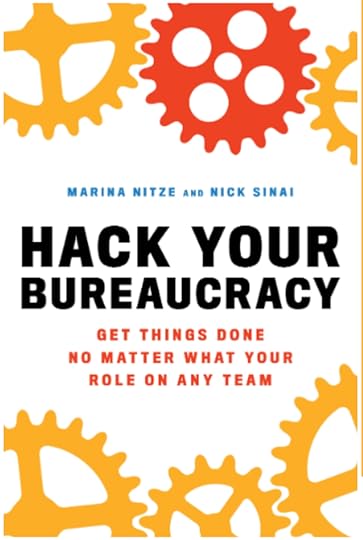
— OFFICIAL DESCRIPTION OF THE BOOK–
Whether you just started your first entry-level job, run the entire company, or just feel trapped by your condo association bylaws, it’s time to learn how to get big things done. From local government to the White House, Harvard to the world of venture capital, Marina Nitze and Nick Sinai have taken on some of the world’s most challenging bureaucracies—and won.
Now, they bring their years of experience to you, teaching you strategies anyone can use to improve your organization through their own stories and those of fellow bureaucracy hackers. Regardless of your industry, role, or team, Hack Your Bureaucracy shows how to get started, take initiative on your own, and transform your ideas into impact.
 Marina Nitze
Marina NitzeMarina Nitze, co-author of the new book Hack Your Bureaucracy, is currently a partner at Layer Aleph, a crisis response firm that specializes in restoring complex software systems to service. Marina is also a fellow at New America’s New Practice Lab, where she works on improving America’s foster care system through the Resource Family Working Group and Child Welfare Playbook. Marina was most recently the Chief Technology Officer of the U.S. Department of Veterans Affairs under President Obama, after serving as a Senior Advisor on technology in the Obama White House and as the first Entrepreneur-in-Residence at the U.S. Department of Education. She serves on the advisory boards of Foster America, Smartsheet, and Think of Us; created TaskTackler, the personal productivity app for Type-A personalities; and previously authored the book Business Efficiency for Dummies. She lives in Seattle, WA.
Apple Podcasts – Simplecast – Amazon Music – Audible – Spotify
YANSS 288 – How a healthy relationship with chaos, randomness, and change can lead to a life well lived
In this episode we sit down with Brian Klaas, author of Fluke, to get into the existential lessons and grander meaning for a life well-lived once one finally accepts the power and influence of randomness, chaos, and chance. In addition, we learn how to not fall prey to proportionality bias– the tendency for human brains to assume big, historical, or massively impactful events must have had big causes and/or complex machinations underlying their grand outcomes. It’s one of the cognitive biases that most contributes to conspiratorial thinking and grand conspiracy theories, one that leads to an assumption that there must be something more going on when big, often unlikely, events make the evening news. Yet, as Brian explains, events big and small are often the result of random inputs in complex systems interacting in ways that are difficult to predict.
Listen on Apple Listen on Spotify Listen on PatreonRSS – Simplecast – Amazon Music – Audible

Official Description of the Book:
In the perspective-altering tradition of Malcolm Gladwell’s The Tipping Point and Nassim Nicholas Taleb’s The Black Swan comes a provocative challenge to how we think our world works—and why small, chance events can divert our lives and change everything, by social scientist and Atlantic writer Brian Klaas.
In Fluke, myth-shattering social scientist Brian Klaas deep-dives into the phenomenon of randomness, dismantling our neat and tidy storybook version of events to reveal a reality far wilder and more fascinating than we’ve dared to consider. The bewildering truth is that but for a few incidental changes, our lives – and our societies – would be radically different.
If you could rewind your life to the very beginning and then press play, would everything turn out the same? Or could making an accidental phone call or missing an exit off the highway change not just your life, but history itself? And would you remain blind to the radically different possible world you unknowingly left behind?
Offering an entirely new lens, Fluke explores how our world really works, driven by strange interactions and apparently random events. How did one couple’s vacation cause 100,000 people to die? Does our decision to hit the snooze button in the morning radically alter the trajectory of our lives? And has the evolution of humans been inevitable, or are we simply the product of a series of freak accidents?
Drawing on social science, chaos theory, history, evolutionary biology, and philosophy, Klaas provides a brilliantly fresh look at why things happen—all while providing mind-bending lessons on how we can live smarter, be happier, and lead more fulfilling lives.
 Brian Klaas
Brian KlaasDr. Brian Klaas is an Associate Professor in Global Politics at University College London, an affiliate researcher at the University of Oxford, and a contributing writer for The Atlantic. He is also the author five books, including Fluke: Chance, Chaos, and Why Everything We Do Matters (2024) and Corruptible: Who Gets Power and How It Changes Us (2021). Klaas writes the popular The Garden of Forking Paths Substack and created the award-winning Power Corrupts podcast, which has been downloaded roughly three million times.
Klaas is an expert on democracy, authoritarianism, American politics, political violence, elections, and the nature of power. Additionally, his research interests include contingency, chaos theory, evolutionary biology, the philosophy of science and social science, and complex systems. In addition to Fluke and Corruptible, Klaas authored three earlier books: The Despot’s Apprentice: Donald Trump’s Attack on Democracy (Hurst & Co, 2017); The Despot’s Accomplice: How the West is Aiding & Abetting the Decline of Democracy, (Oxford University Press, 2016) and How to Rig an Election (Yale University Press, co-authored with Professor Nic Cheeseman; 2018).
Klaas has advised a variety of governments, US political campaigns, NATO, the European Union, the International Crisis Group, the Carter Center, multi-billion dollar investors, international NGOs, and international politicians.
Klaas has conducted field research, interviewing more than 500 people across the globe, including prime ministers, presidents, ministers, rebels, coup plotters, dissidents, and torture victims in an array of countries, including Madagascar, Thailand, Tunisia, Belarus, Côte d’Ivoire, Zambia, and Latvia.
Prior to becoming an academic, Dr. Klaas worked on US political campaigns—including serving as the Policy Director / Deputy Campaign Manager for Mark Dayton’s successful bid for Governor of Minnesota in 2010.
Links and SourcesApple – RSS – Simplecast – Spotify – Amazon Music – Audible
May 14, 2024
YANSS 287 – The complex task of defining, categorizing, and classifying “genius”
In this episode, we are exploring the complexity of the concept of “genius” with two experts on the topic. First you’ll hear from David Krakauer, the president of The Santa Fe Institute, a research institution in New Mexico dedicated to the study of complexity science, and then you’ll hear from professor Dean Keith Simonton, one of the world’s leading researchers into the psychological mechanisms and influences that generate the phenomenon we so often refer to as “genius.”
Listen on Apple Listen on Spotify Listen on PatreonRSS – Amazon Music – Audible
 David Krakauer
David KrakauerDavid Krakauer is the President and William H. Miller Professor of Complex Systems at the Santa Fe Institute. His research explores the evolution of intelligence on Earth. He is also a member of the C4 research group at SFI. He served as the founding Director of the Wisconsin Institutes for Discovery, the Co-Director of the Center for Complexity and Collective Computation, and Professor of Mathematical Genetics all at the University of Wisconsin, Madison. David has been a visiting fellow at the Genomics Frontiers Institute at the University of Pennsylvania, a Sage Fellow at the Sage Center for the Study of the Mind at the University of Santa Barbara, a long-term Fellow of the Institute for Advanced Study in Princeton, and visiting Professor of Evolution at Princeton University. Krakauer was included in Wired Magazine’s 2012 Smart List as one of fifty people “who will change the world,” and Entrepreneur Magazine’s 2016 list of visionary leaders advancing global research and business.
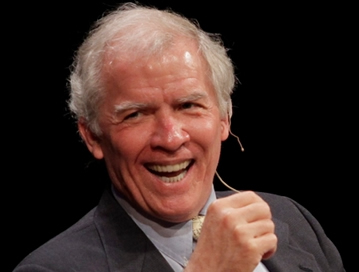 Dean K, Simonton
Dean K, SimontonDean Simonton is a distinguished professor emeritus of psychology at the University of California, Davis. He is a member of a number of professional organizations, having served as president of the Society for General Psychology, APA Division 1, from 2011-2012 and previously as the president of the International Association of Empirical Aesthetics, and the Society for Aesthetics, Creativity and the Arts, APA Division 10. He also serves on a number of editorial committees and is currently associate editor of The Wiley-Blackwell Encyclopedia of Adulthood and Aging, as well as direct submissions editor for Proceedings of the National Academy of Sciences. At UC Davis, Professor Simonton has served in a number of executive roles, including chair of the faculty for the executive committee and representative assembly, and departmental vice-chair, among others.
Links and SourcesYANSS 286 – An introduction to complexity science, chaos theory, and how life, um, finds a way
In this episode we sit down with professor Neil Theise, the author of Notes on Complexity, to get an introduction to the science of how complex systems behave – from cells to human beings, ecosystems, the known universe, and beyond – and we explore if Ian Malcolm was right when he told us in Jurassic Park that “Life, um, finds a way.”
Listen on Apple Listen on Spotify Listen on PatreonRSS – Amazon Music – Audible
OFFICIAL DESCRIPTION OF NOTES ON COMPLEXITY

Nothing in the universe is more complex than life. Throughout the skies, in oceans, and across lands, life is endlessly on the move. In its myriad forms—from cells to human beings, social structures, and ecosystems—life is open-ended, evolving, unpredictable, yet adaptive and self-sustaining. Complexity theory addresses the mysteries that animate science, philosophy, and metaphysics: how this teeming array of existence, from the infinitesimal to the infinite, is in fact a seamless living whole and what our place, as conscious beings, is within it. Physician, scientist, and philosopher Neil Theise makes accessible this “theory of being,” one of the pillars of modern science, and its holistic view of human existence. He notes the surprising underlying connections within a universe that is itself one vast complex system—between ant colonies and the growth of forests, cancer and economic bubbles, murmurations of starlings and crowds walking down the street.
The implications of complexity theory are profound, providing insight into everything from the permeable boundaries of our bodies to the nature of consciousness. NOTES ON COMPLEXITY is an invitation to trade our limited, individualistic view for the expansive perspective of a universe that is dynamic, cohesive, and alive—a whole greater than the sum of its parts. Theise takes us to the exhilarating frontiers of human knowledge and in the process restores wonder and meaning to our experience of the everyday.

Neil Theise is a professor of pathology at the NYU Grossman School of Medicine. Through his scientific research, he has been a pioneer of adult stem cell plasticity and the anatomy of the human interstitium. Dr. Theise’s studies in complexity theory have led to interdisciplinary collaborations in fields such as integrative medicine, consciousness studies, and science-religion dialogue.
Links and SourcesYANSS 285 – The science behind how and why we talk past each other (and what to do about it)
Is a hotdog a sandwich? Well, that depends on your definition of a sandwich (and a hotdog), and according to the most recent research in cognitive science, the odds that your concept of a sandwich is the same as another person’s concept are shockingly low.
In this episode we explore how understanding why that question became a world-spanning argument in the mid 2010s helps us understand some of the world-spanning arguments vexing us today.
Our guest is psychologist Celeste Kidd who studies how we acquire and conceptualize information, form beliefs around those concepts, and, in general, make sense of the torrent of information blasting our brains each and every second. Her most recent paper examines how conceptual misalignment can lead to semantic disagreements, which can lead us to talk past each other (and get into arguments about things like whether hotdogs are sandwiches).
RSS – Amazon Music – Audible
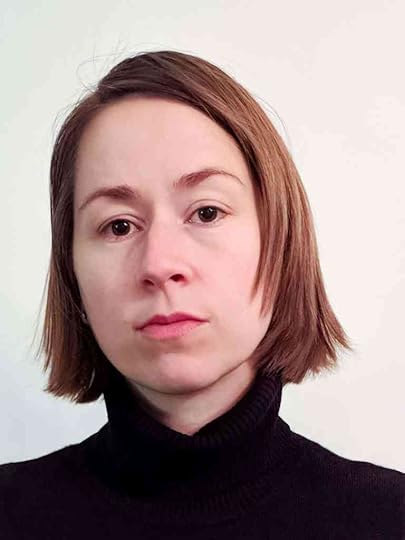 Celeste Kidd
Celeste KiddCeleste Kidd is a psychologist at Berkeley. She is a cognitive scientist and developmental psychologist who is well known for her research on human curiosity and certainty how human brains develop knowledge.
Her lab, the Kidd Lab, studies the processes involved in knowledge acquisition, especially in young children, using a combination of computational and behavioral methods.
The Kidd Lab employs a range of methods, including eye-tracking and touchscreen testing with human infants, in order to show how learners sample information from their environment and build knowledge gradually over time.
Celeste Kidd’s work has been published in PNAS, Neuron, Psychological Science, Developmental Science, and elsewhere. Her lab has received funding from NSF, DARPA, Google, the Jacobs Foundation, the Human Frontiers Science Program, and the Templeton Foundation. She is a recipient of the Hellman Fellows award, the American Psychological Science Rising Star designation, the Glushko Dissertation Prize in Cognitive Science, and the Cognitive Science Society Computational Modeling Prize in Perception/Action.
Kidd was also named as one of TIME Magazines 2017 Persons of the Year as one of the “Silence Breakers” for her advocacy for better protections for students against sexual misconduct.
Apple Podcasts – RSS – Amazon Music – Audible – Spotify – Patreon
YANSS 284 – A radical scientific investigation and deeply personal inquiry into the elusive emotion we call awe
In this episode we sit down with psychologist Dacher Keltner, one of the world’s leading experts on the science of emotion, the man Pixar hired to help them write Inside Out. In his new book – Awe: The New Science of Everyday Wonder and How It Can Transform Your Life – he outlines his years of work in this field, the health benefits of awe, the evolutionary origins and likely functions, and how to better pursue more awe and wonder in your own life.
Apple – Spotify – Audible – Amazon – RSS – Patreon
OFFICIAL DESCRIPTION OF THE BOOK
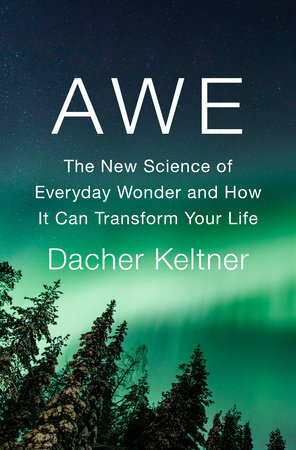
Awe is mysterious. How do we begin to quantify the goose bumps we feel when we see the Grand Canyon, or the utter amazement when we watch a child walk for the first time? How do you put into words the collective effervescence of standing in a crowd and singing in unison, or the wonder you feel while gazing at centuries-old works of art? Up until fifteen years ago, there was no science of awe, the feeling we experience when we encounter vast mysteries that transcend our understanding of the world. Scientists were studying emotions like fear and disgust, emotions that seemed essential to human survival. Revolutionary thinking, though, has brought into focus how, through the span of evolution, we’ve met our most basic needs socially. We’ve survived thanks to our capacities to cooperate, form communities, and create culture that strengthens our sense of shared identity—actions that are sparked and spurred by awe.
In Awe, Dacher Keltner presents a radical investigation and deeply personal inquiry into this elusive emotion. Revealing new research into how awe transforms our brains and bodies, alongside an examination of awe across history, culture, and within his own life during a period of grief, Keltner shows us how cultivating awe in our everyday life leads us to appreciate what is most humane in our human nature. And during a moment in which our world feels more divided than ever before, and more imperiled by crises of different kinds, we are greatly in need of awe. If we open our minds, it is awe that sharpens our reasoning and orients us toward big ideas and new insights, that cools our immune system’s inflammation response and strengthens our bodies. It is awe that activates our inclination to share and create strong networks, to take actions that are good for the natural and social world around us. It is awe that transforms who we are, that inspires the creation of art, music, and religion. At turns radical and profound, brimming with enlightening and practical insights, Awe is our field guide, from not only one of the leading voices on the subject but a fellow seeker of awe in his own right, for how to place awe as a vital force within our lives.
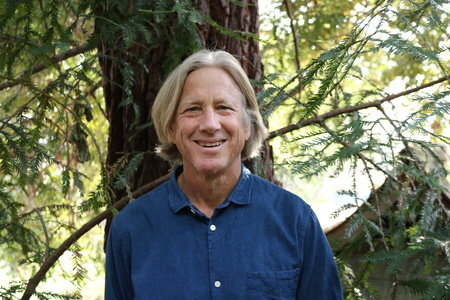 Dacher Keltner
Dacher KeltnerDacher Keltner is a professor of psychology at the University of California, Berkeley and the faculty director of the UC Berkeley Greater Good Science Center.
A renowned expert in the biological and evolutionary origins of human emotion, Dr. Keltner studies the science of compassion, awe, love, and beauty, and how emotions shape our moral intuition.
His research interests also span issues of power, status, inequality, and social class. He is the author of the best-selling book Born to Be Good: The Science of a Meaningful Life and of The Compassionate Instinct.
March 22, 2024
YANSS 283 – How to create cultures of growth (instead of creativity-crushing cultures of genius)
In this episode we welcome psychologist Mary C. Murphy, author of Cultures of Growth, who tells us how to create institutions, businesses, and other groups of humans that can better support collaboration, innovation, performance, and wellbeing. We also learn how, even if you know all about the growth mindset, the latest research suggests you not may not be creating a culture of growth despite what feels like your best efforts to do so.
Listen on Apple Listen on Spotify Listen on GoogleRSS – Patreon – Simplecast – Amazon Music – Audible

Official Description of the Book:
Carol Dweck’s multi-million-copy bestseller Mindset has transformed our view of individual success, coining the terms “fixed” and “growth” mindset: in a “fixed” mindset, talent and intelligence are viewed as predetermined traits, while in a “growth” mindset, talent and intelligence can be nurtured through dedication, the right strategies, and resilience.
But we’ve only understood mindset as solely about individuals.
Now Dweck’s protégé, Mary Murphy, social psychologist at both Stanford and Indiana University, presents a groundbreaking take on mindset, showing how to transform any group, team, or classroom to reach breakthroughs while also helping each person achieve their potential.
Discover how Cultures of Growth helped make outdoor retailer Patagonia a leader in its field; how Satya Nadella transformed Microsoft with a singular focus on growth mindset; how winemakers Robin McBride and Andréa McBride John are leading with their mindset to disrupt and diversify an entire industry; and how a New York school superintendent reversed massive inequities for children of color by reshaping the district’s mindset culture.
Drawing on compelling examples from her work with Fortune 500 companies, startups, and schools, Murphy demonstrates that the organization’s mindset culture is the key to success for both individuals and the entire organization, teaching you how to create Cultures of Growth through exercises—no matter your role.
Cultures of Growth are environments that people want to be in because they’re places where people can thrive and achieve their potential, both individually and together. In a world where success seems reserved for a chosen few, Cultures of Growth unveils a radically different approach to creating organizations that inspire learning, growth, and success at all levels.

Mary C. Murphy is Professor of Psychological and Brain Sciences at Indiana University. She is Founding Director of the Summer Institute on Diversity at the Center for Advanced Study in the Behavioral Sciences at Stanford University.
She is founder and CEO of the Equity Accelerator, a research and consulting organization that works with schools and companies to create more equitable learning and working environments through social and behavioral science. Mary conducts pioneering research on motivation, performance, and intergroup relations. She was awarded the 2019 Presidential Early Career Award for Scientists and Engineers, the highest award bestowed on early career scholars by the U.S. government.
Originally from San Antonio, Texas, she earned her BA from the University of Texas at Austin and her PhD in social psychology from Stanford University in 2007, mentored by Claude Steele and Carol Dweck. She splits her time between Bloomington, Indiana, and Palo Alto, California.
Links and SourcesApple – RSS – Simplecast – Spotify – Amazon Music – Audible – Google Podcasts
David McRaney's Blog
- David McRaney's profile
- 582 followers



